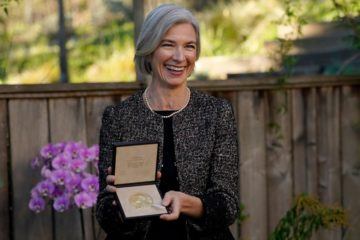Jackie Leach Scully in Nature:
 What we used to call genetic engineering has been subject to decades of bioethical scrutiny. Then, the arrival of CRISPR — which allows researchers to cut and paste gene sequences with vastly improved accuracy and efficiency — catapulted reassuringly distant science fiction into a pressing reality, and helped to concentrate minds. There’s now enough technical and popular writing on the technology and its ethics to fill many bookshelves. Given that not even ten years have passed since the first papers showing a practical use for CRISPR in human genome editing, these accounts inevitably go over much of the same territory. The differences are in the authors’ perspectives — broadly enthusiastic about the possibilities of genome editing, or not — and whether the focus is on the discoveries, the ramifications, the personalities involved or some combination. Two new books on the topic differ markedly in reach, style and emphasis. Reading them together gives insight into what the CRISPR story means — for knowledge, for society and for research as an endeavour.
What we used to call genetic engineering has been subject to decades of bioethical scrutiny. Then, the arrival of CRISPR — which allows researchers to cut and paste gene sequences with vastly improved accuracy and efficiency — catapulted reassuringly distant science fiction into a pressing reality, and helped to concentrate minds. There’s now enough technical and popular writing on the technology and its ethics to fill many bookshelves. Given that not even ten years have passed since the first papers showing a practical use for CRISPR in human genome editing, these accounts inevitably go over much of the same territory. The differences are in the authors’ perspectives — broadly enthusiastic about the possibilities of genome editing, or not — and whether the focus is on the discoveries, the ramifications, the personalities involved or some combination. Two new books on the topic differ markedly in reach, style and emphasis. Reading them together gives insight into what the CRISPR story means — for knowledge, for society and for research as an endeavour.
Henry Greely, author of CRISPR People, is a bioethicist with a legal background. His focus is the now-familiar tale of biophysicist He Jiankui’s attempt to change the DNA of human embryos, with the aim of producing the first genetically edited human babies. Greely describes the science, ethics and legal framework of genome editing before CRISPR; how that technology changed the game; what He Jiankui actually did in the laboratory, as far as we know; and how the world responded to the news of the births of genome-edited twins in 2018.
More here.
